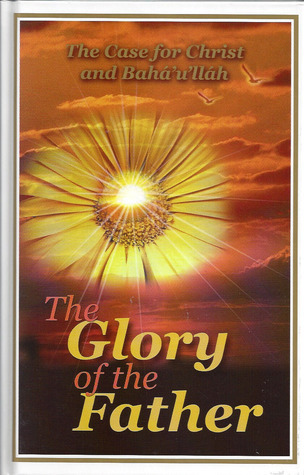Bahá’í teachings encompass a profound exploration of the nature of divinity, humanity, and the interconnectedness of all creation. Among the many texts that elucidate these teachings, “The Glory of the Father” represents a significant contribution, bearing with it the weight of philosophical depth and spiritual insight. This treatise not only delves into the nature of God but also highlights the essential attributes of His manifestations, particularly Bahá’u’lláh, the founder of the Bahá’í Faith. This article will explore various facets that readers can expect from this profound work: theological foundations, interpretations of divine attributes, the role of Bahá’u’lláh, implications for human conduct, and a synthesis of contemporary relevance.
The initial sections of “The Glory of the Father” lay a robust theological foundation, establishing the nature of God as transcendent yet immanent. The text meticulously articulates the attributes of God, portraying Him as all-knowing, all-powerful, and fundamentally loving. This loving aspect is conveyed through various passages that discuss the relationship between the Creator and humanity. It is within this framework that readers can grasp the Bahá’í perspective, which posits that understanding God is paramount for spiritual growth. Contrary to some theological positions that promote a distant God, this work emphasizes an intimate relationship, encouraging readers to perceive divinity as both a guiding light and a source of inexhaustible love.
Moving beyond the nature of God, “The Glory of the Father” elaborates on the concept of divine manifestations. Particularly, it highlights Bahá’u’lláh as the latest Manifestation of God, heralding a new epoch in spiritual evolution. This section elucidates how Bahá’u’lláh embodies the attributes of divinity, acting as a bridge between the human experience and the heavenly realm. Readers can discover how Bahá’u’lláh’s teachings invite individuals to reflect upon their own spiritual journeys, inspiring them to seek a deeper communion with the divine. The work illustrates not just an acknowledgment of Bahá’u’lláh’s role but also a divine blueprint for humanity’s collective ascent towards unity and peace.
The book further examines the implications of recognizing Bahá’u’lláh’s station. The significance of His teachings transcends mere belief; it requires action and transformation in individual lives and communities. Readers can expect a cogent analysis of moral and ethical imperatives derived from Bahá’u’lláh’s pronouncements. This encompasses discussions on justice, equity, and the eradication of prejudice. These themes are intricately woven into the narrative, providing insights into how Bahá’í principles can serve as catalysts for societal change. The reader is invited to contemplate their responsibilities as stewards of the earth and as advocates for universal harmony.
Another noteworthy dimension explored in “The Glory of the Father” is the concept of spiritual maturity and its connection to divine knowledge. The text posits that attaining a deeper understanding of God and His manifestations necessitates a commitment to spiritual education. This commitment involves rigorous study, contemplation, and the application of Bahá’í teachings in daily life. Through such engagement, individuals can cultivate virtues that align with divine attributes, fostering personal and communal development. Readers will be encouraged to reflect on their own spiritual practices, assessing how these align with Bahá’í ideals and the broader pursuit of truth.
The exploration of Bahá’í teachings in “The Glory of the Father” also addresses the contemporary relevance of these concepts. In an age marked by division, strife, and spiritual desolation, the teachings of Bahá’u’lláh offer a timeless antidote. The text articulates a vision of a united global society, one that transcends boundaries of race, nationality, and religion. Readers can engage with the notion that Bahá’í principles are not merely aspirational but are practical tools for navigating the complexities of modern life. By integrating the essence of these teachings into daily routine, individuals can contribute to the collective betterment of humanity.
The conclusion of “The Glory of the Father” invites a reflective synthesis of these teachings, encouraging a holistic view of the divine and humanity’s relationship to it. It posits that the path to understanding is rife with challenges yet imbued with transformative potential. Readers are reminded that the journey towards divine recognition, as illuminated by Bahá’u’lláh, is a shared odyssey. It is through persistent dialogue, engagement, and the pursuit of knowledge that souls can gradually unveil the depths of truth.
In essence, “The Glory of the Father” serves as a compendium of Bahá’í teachings that guide seekers of truth toward a deeper understanding of their spiritual existence. From theological foundations to the implications of Bahá’u’lláh’s teachings and their relevance in today’s world, this work provides a comprehensive overview of the Bahá’í perspective on divinity and humanity. As readers navigate through its pages, they are encouraged to embrace a life characterized by spiritual odyssey, exemplifying the virtues that lead to personal fulfillment and collective harmony. This understanding is not merely an academic exercise; it is a call to action that resonates across generations, urging all to realize the divine potential within themselves and their communities.
